Nexus Notes – Land sparing vs. land sharing, the pulse of rivers, ocean summits, and peer review is broken
Nexus Notes #8
Welcome to Nexus Notes. These are quick thoughts from me designed to share things I’ve been up to, been reading or just any other random stuff I’ve come across I think you may enjoy for the week. Think of it as a bit of a link-fest with a few accompanying thoughts.
If you find value here and believe in accessible, independent insight, please consider joining our small inner circle of paid supporters. Become part of the select few who make this possible for everyone else:
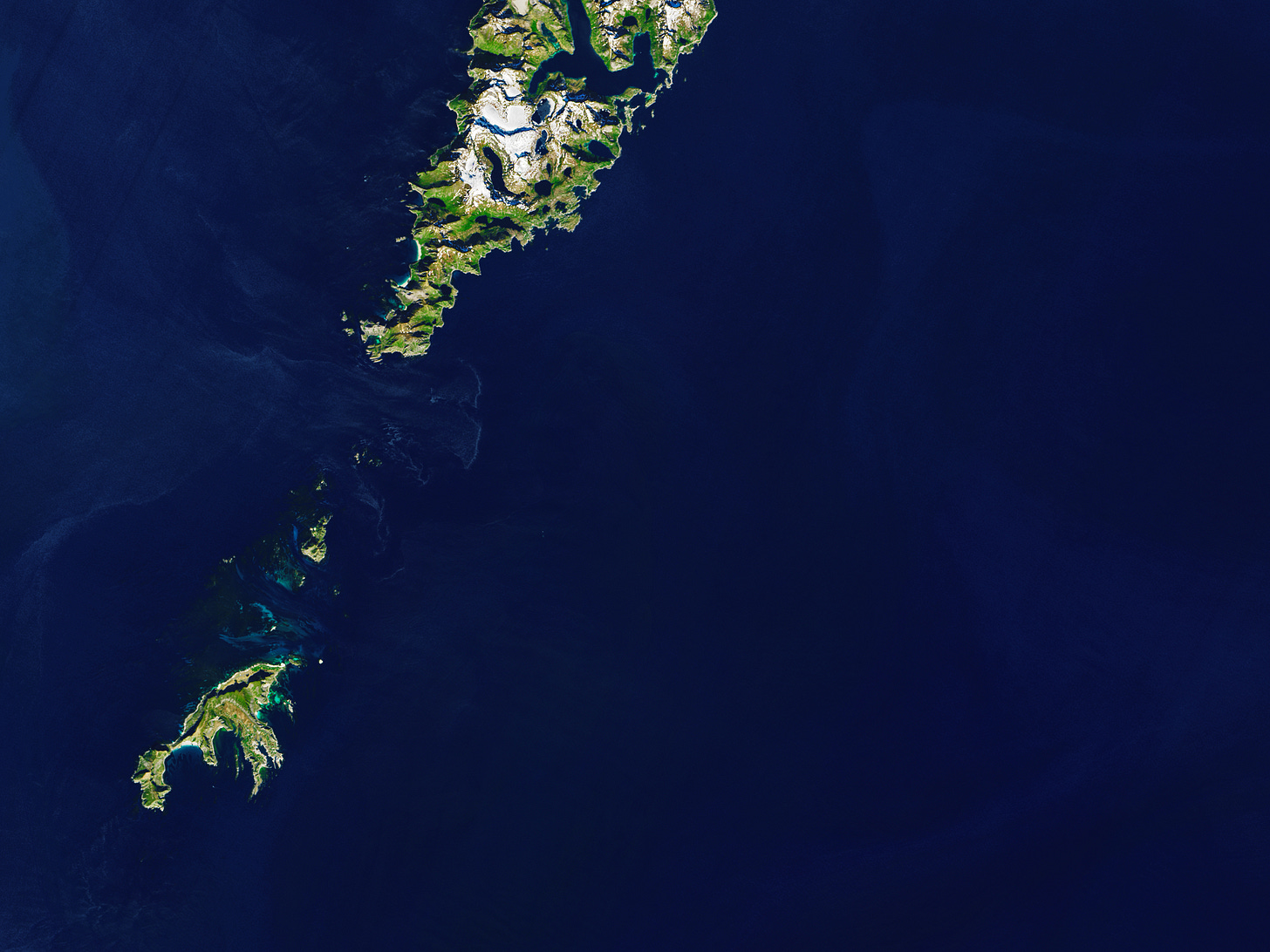
Hi folks!
Hope you’re having a great week. Here is your fortnightly dose of Nexus Notes — a list of things I’m pondering and exploring. Don’t forget to leave your guess of the location above in the comments!
Where I’ve been
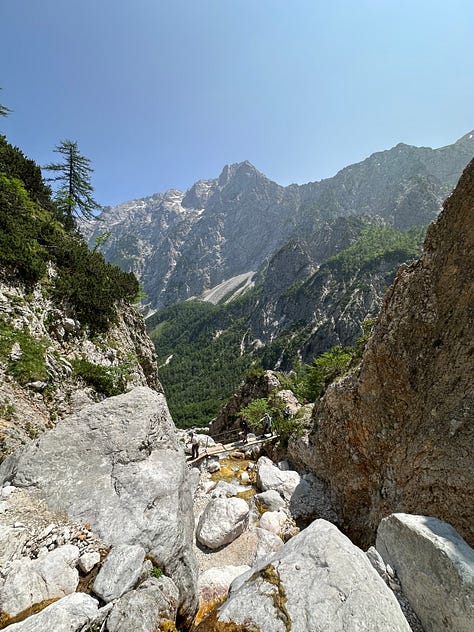
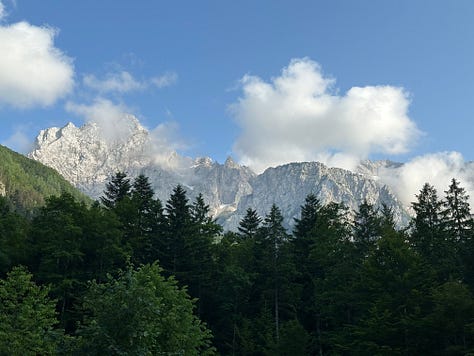
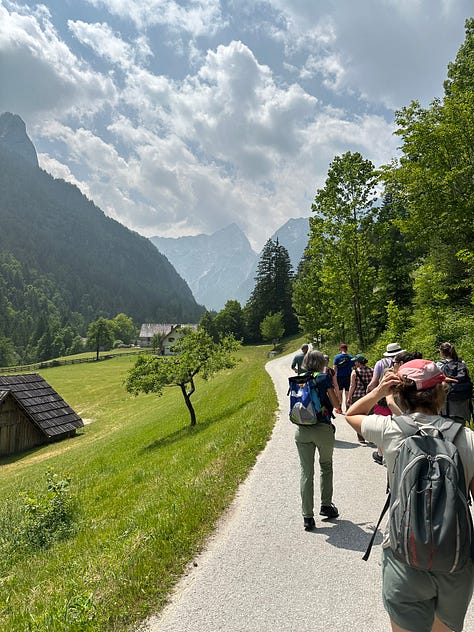
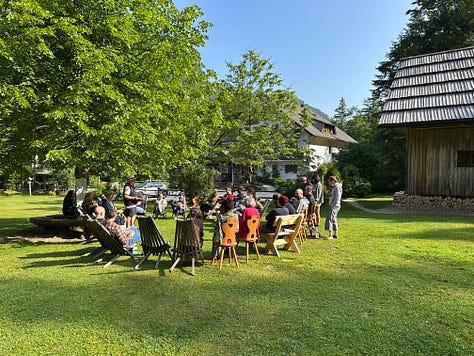

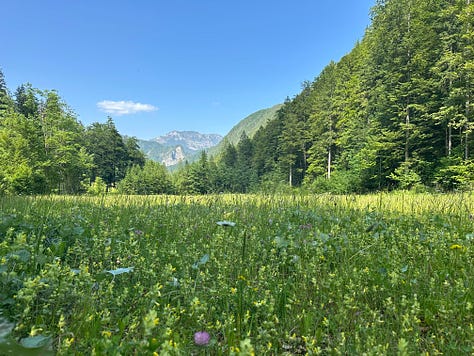
I spent last week in the mountains of Slovenia — a place called the Logar Valley, a couple hours north of Ljubljana. I was attending a workshop called ANdiNA. This was the seventh annual ANdiNA, this time focused on “aligning global priorities and local action in ecological research and practice”.
It was a fabulous week of brainstorming important questions, making new friends, and walking in the mountains. Stay tuned for some exciting research we have initiated. Just because I don’t have enough to do (!!!), I have taken on leading one of the outputs. But I’m so excited by it that it doesn’t feel like work! This is something I believe will make a big dent, so stay tuned.
Last week’s location
Suwannee River entering into the Gulf of Mexico (note the bold italics there 😉), on the Florida coast. Known as a blackwater river because of its dark-brown waters loaded with organic material, the Suwannee gets its colour from Georgia’s boggy Okefenokee Swamp. The swamp is full of peat deposits and the result is an almost pitch black river full of tannins.
Paper I’m reading
Bateman, I., and A. Balmford. 2023. Current conservation policies risk accelerating biodiversity loss. Nature 618:671–674.
“Three approaches that aim to cut the harms of agriculture — land sharing, rewilding and organic farming — risk driving up food imports and causing environmental damage overseas. An alternative approach is both effective and cheaper.”
An interesting piece on the potential perverse outcomes of conservation actions. The land sparing vs. land sharing debate is a well trodden and controversial path with regard to feeding the world while conserving biodiversity. But this opinion piece lays out some of the issues with current approaches to mitigating the environmental impacts of agriculture. Namely, land sharing, rewilding and organic farming. These can result in reduced food per hectare, and when we produce less food at home but people still need to eat, we import more from overseas.
“What’s more, taking land out of agriculture without lowering food demand or raising yields elsewhere in a country increases the need for imports, which means more harm to biodiversity and natural habitats farther away.”
They suggest land sparing is a potentially more effective strategy. This was a necessarily simplified perspective given the length of the piece, but it’s a contentious space. I’ll withhold my judgement here, but there’s more to it than just a land sparing vs. land sharing issue.
Conversation piece of the week
Robert Macfarlane’s new book is a plea to feel the pulse of our rivers.
As you are surely aware, seasonality and rivers are two of my passions and primary areas of research interest. This piece reviews John McFarlane’s latest book (Is a river alive?), which brings these two themes together. This is on my to-read list, so I can’t give a personal reflection yet, but the review suggests it’s worth a read — not surprising given the author.
“Is a River Alive? may not stem the tide of environmental destruction. But for those frustrated by the logics of inaction of short-term decision-making, it provides timely and necessary inspiration.”
Ring a bell? 👇👇👇
Environmental news of the week
“We are not treating the ocean as what it is – the ultimate global commons,”
— UN Secretary-General António Guterres
The UN Ocean Summit was held last week in Nice, France. More than 60 Heads of State and Government attended, with the Summit ending in “a shared call to expand marine protection, curb pollution, regulate the high seas, and unlock financing for vulnerable coastal and island nations.”
“The conference’s outcome, known as the Nice Ocean Action Plan, is a two-part framework that comprises a political declaration and over 800 voluntary commitments by governments, scientists, UN agencies, and civil society since the previous conference.”
One of the key goals is protecting 30% of the world’s seas by 2030, aligning with the Kunming-Montreal Global Biodiversity Framework. The High Seas Treaty should help get there, and enough countries have now either ratified or formally committed to ratifying it.
Further, a series of pledges were made, including:
“The European Commission announced an investment of €1 billion to support ocean conservation, science, and sustainable fishing, while French Polynesia pledged to create the world’s largest marine protected area, encompassing its entire exclusive economic zone – about five million square kilometers.”
“New Zealand committed $52 million to strengthen ocean governance”
Let’s see if the words turn to action!
Peer review is broken
This one is more for the scientists reading, but Brian McGill over at Dynamic Ecology hit the nail on the head about the issues with peer review in science the moment. It’s failing us a bit, largely because people aren’t pulling their weight. There are many reasons for this, but if you publish research you need to review too! A good rule of thumb is to review two papers for every one you submit, but not many folks abide by this. So the system is a bit broken. As an editor, I often have to invite upwards of 10-20 people before I get two to agree to review. And this is at a leading ecological journal. I can imagine it’s much worse at more low-ranked journals. The people suffering the most? Early career researchers who need timely reviews to ensure they have publications out to be competitive for jobs.
As Brian says:
“So step up. Shake off those lingering COVID doldrums. Be a good scientist. Benefit yourself. Review at least twice as many papers as the number you submit as first or senior author each year.”
PS: It’s great to see Dynamic Ecology back up and running at full speed again. Thanks Jeremy and crew.
Want to help get science into the mainstream?
👉 Support this work for the cost of a ☕️ per month and unlock bonus posts, behind-the-scenes insights, in-depth Q&As, and exclusive member-only chats.
Most importantly, your support helps keep these posts free for everyone who can’t afford to pay — and brings real science into the mainstream.
Have a fun week!
Jono





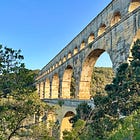
So much excellent “let’s move beyond the limited land sparing framework” work is produced in the mid 2010s, but *some* just won’t let it go!
Can we send you to Romania for a similar adventure and report? Carpathian Mountains, rich soils and generous souls. Traditional peasant lifestyle still happening in places. Lovely wooden churches.